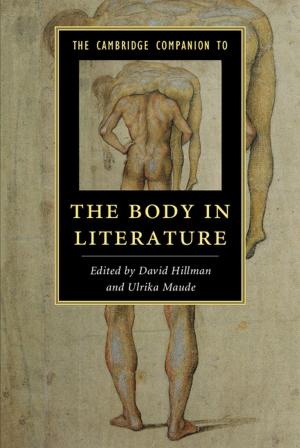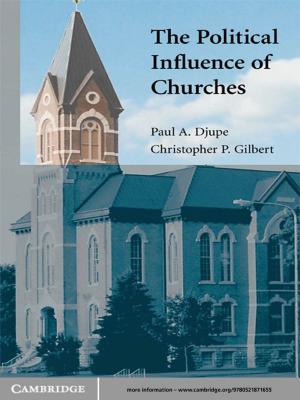| Author: | Jonathan Michael Gray | ISBN: | 9781139793957 |
| Publisher: | Cambridge University Press | Publication: | October 18, 2012 |
| Imprint: | Cambridge University Press | Language: | English |
| Author: | Jonathan Michael Gray |
| ISBN: | 9781139793957 |
| Publisher: | Cambridge University Press |
| Publication: | October 18, 2012 |
| Imprint: | Cambridge University Press |
| Language: | English |
The practice of swearing oaths was at the centre of the English Reformation. On the one hand, oaths were the medium through which the Henrician regime implemented its ideology and secured loyalty among the people. On the other, they were the tool by which the English people embraced, resisted and manipulated royal policy. Jonathan Michael Gray argues that since the Reformation was negotiated through oaths, their precise significance and function are central to understanding it fully. Oaths and the English Reformation sheds new light on the motivation of Henry VIII, the enforcement of and resistance to reform and the extent of popular participation and negotiation in the political process. Placing oaths at the heart of the narrative, this book argues that the English Reformation was determined as much by its method of implementation and response as it was by the theology or political theory it transmitted.
The practice of swearing oaths was at the centre of the English Reformation. On the one hand, oaths were the medium through which the Henrician regime implemented its ideology and secured loyalty among the people. On the other, they were the tool by which the English people embraced, resisted and manipulated royal policy. Jonathan Michael Gray argues that since the Reformation was negotiated through oaths, their precise significance and function are central to understanding it fully. Oaths and the English Reformation sheds new light on the motivation of Henry VIII, the enforcement of and resistance to reform and the extent of popular participation and negotiation in the political process. Placing oaths at the heart of the narrative, this book argues that the English Reformation was determined as much by its method of implementation and response as it was by the theology or political theory it transmitted.















